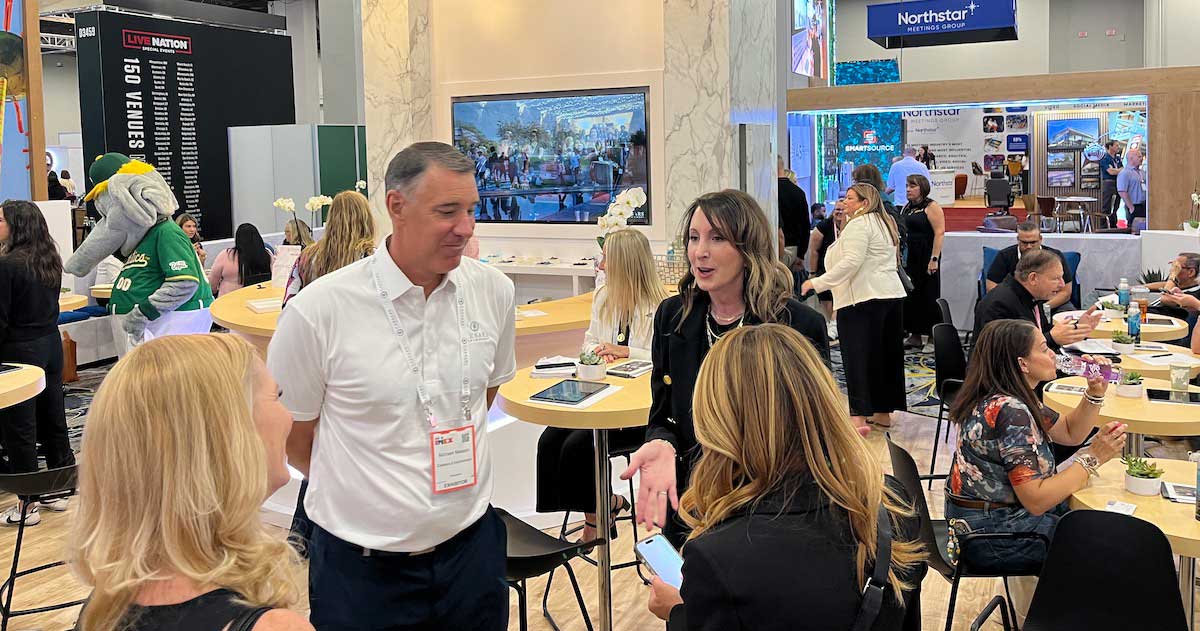Whether you are an event planner or a supplier, practically everyone in the meetings industry is struggling right now with rising costs and tightening budgets. Recently, the MPI Association Professionals Council hosted an informative hot topic chat on strategies for identifying cost-saving opportunities, prioritizing spending, and negotiating favorable terms with vendors.
The panel, moderated by Lindsay A. Plath, CMP, Education & Events Manager with AMR Management Services, included:
- Peter Betz, Director of Culinary, New York Hilton
- Kellie Ann Cahill, CMP, Complex Commercial Director, Conrad New York Midtown and New York Hilton
- Brittney Cobb, Manager, Global Events, INNOV8 Meetings + Events
- Sara Krauss-Kuhnle, Senior Account Executive, Association, Account Sales Organization, Marriott International
- Anca Platon Trifan, CMP, DES, CEO, Principal Technical Event Planner and Producer, Tree-Fan Events
The panelists urged planners to be transparent in their communication with venues and vendors, present the details of their events honestly, and readily trust their partners.
Read on to hear their tips on questions that were posed.
What do you believe are the most effective strategies for event professionals to negotiate favorable terms with vendors and suppliers while managing rising costs?
- Know your value and know your group. Understand how the hotel evaluates your group, knowing that gives you negotiating leverage. Cobb explained that this is important now because of the amount of demand. Knowing your historical pickups, room revenue, food and beverage spend, AV spend, etc. can show the vendor or supplier the true value of your event and help you to prioritize what concessions to ask for.
- Consider a multi-year contract. Both Krauss-Kuhnle on behalf of Marriott and Cahill on behalf of Hilton agreed that if a planner can commit to a multiple year contract, there could be concessions and rebates offered and that would also give you leverage against short term business. This commitment could help the hotel reconsider your business, especially if you don’t have the perfect program otherwise.
Given the ever-increasing pricing landscape of events, what advice do you have for event professionals to help them manage their catering budgets and ensure that their menus are still creative and engaging, even with budgetary constraints?
- Request to have the venue’s culinary team involved in your event from the start. When planners put food and beverage creativity in the hands of the venue, it allows the planner to stay within budget and the venue to work within their margins which results in creating a great experience for everyone.
- Focus on impact instead of quantity. Betz suggested bringing the menu down to fewer but more interesting items.
- Think about repurposing. Could you use your desserts as a centerpiece instead of spending money on floral arrangements? Could you use extra breakfast items like fruit or muffins for an AM break? Could you take the open bottles of wine you already paid for and use them for a staff room or another function?
What are helpful guidelines or examples that you could give for the RFP and contracting process?
- Present contract clauses up front. Don’t be afraid to lay your cards out from the beginning. It will save everyone time. Don’t be afraid to ask for custom clauses. The worst that happens is you get a “no”. Krauss-Kuhnle suggests leaving the force majeure/implausibility clause alone and not spending time on it as you are covered and spend your time on other clauses instead to get what you need.
- Request a room block audit or review. Often your contract will say that someone booking outside of the block won’t count towards your attrition so pay attention to that.
- Include CVBs on your initial RFPs. Some second- and third-tier destinations have been offering good financial incentives to book your event in their cities.
- Know your national sales rep. They know your association’s booking history and can help you with contracting and beyond.
Are there any additional areas of potential financial exposure in hotel contracts that you would advise planners look at before signing to reduce or eliminate risks?
- Keep an eye out for hotel fees and surcharges. Urban city fees, historical preservation fees, unique taxes, etc. Venues often cannot negotiate taxes - make sure everything is spelled out in your contract. Include on your contract that no additional fees or surcharges can be added to your contract after it has been signed. For example, a resort fee can’t increase from $35 to $55. If a hotel charges early departure fees, you should be credited those fees towards your attrition.
- Ask what rooms are out for construction or not available. Make sure you get credit for them.
- Look at published rate savings language. Make sure you have guaranteed the lowest group rate in-house. You may want to have a clause that the hotel cannot promote or publish a lower rate or if they do, they need to honor it for your group. Keep in mind that this may be harder to get if you are a smaller group in a larger hotel.
Given the importance of AV production to the overall success of an event, how can event professionals negotiate favorable terms with AV vendors and suppliers, while still staying within budget and ensuring that they are providing a high-quality experience for attendees?
- Bring an AV company into the conversation at the outset of planning. Trifan suggests that bringing AV into the conversation earlier on gives planners access to better pricing, higher skilled labor, etc. because the AV company has more time to plan as well.
- Be transparent with your AV budget and share that up front. This will save both the planner and the AV company time by knowing what to include on the proposal from the beginning which will reduce the number of revisions and updates.
- Prioritize your needs over your wants. Know what is a need for your group vs. what is a want. Your AV provider can focus more of your budget on your needs and try to help you find cost-effective solutions for your wants.
- Do your research so that you can negotiate well. Determine if it makes sense to use the in-house AV company or bring in an outside vendor. Make sure you are comparing apples to apples.
- Consider bundling AV services or sharing sets. Planners should reach out to their venue to see what equipment and room sets are already in the space from a previous group. Though you may not want or need to use everything that is there already, there may be elements that can be incorporated into your event and help bring down your costs.
A few of the panelists repeatedly mentioned the same suggestion: trust your partners. There has to be a trust factor as a planner to hand over some of the control to the experts at the venue or to the vendor. Two-way open communication starting from the contracting phase benefits both the planner and the supplier and leads to long-term partnerships.
Contact the Hot Topic Panelists
Peter Betz - Director of Culinary, New York Hilton - peter.betz@hilton.com
Kellie Ann Cahill, CMP - Complex Commercial Director, Conrad New York Midtown, New York Hilton - kellie.cahill@hilton.com
Brittney Cobb - Manager, Global Events, INNOV8 Meetings + Events - brittney@innov8meetings.com
Sara Krauss-Kuhnle - Senior Account Executive, Association, Account Sales Organization, Marriott International - sara.krauss@marriott.com
Anca Platon Trifan, CMP, DES - CEO, Principal Technical Event Planner and Producer, Tree-Fan Events - treefanevents@gmail.com







